
The Cambridge History of South Africa is a two volume history of South Africa published by Cambridge University Press in 2009 (Vol. 1) and 2011 (Vol. 2).

The Cambridge History of South Africa is a two volume history of South Africa published by Cambridge University Press in 2009 (Vol. 1) and 2011 (Vol. 2).
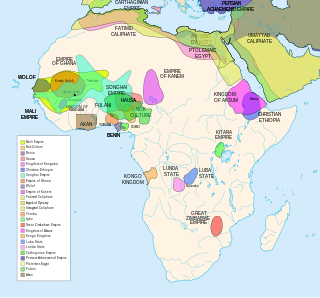
The Scramble for Africa was the conquest and colonisation of most of Africa by seven Western European powers driven by the Second Industrial Revolution during the era of "New Imperialism" (1833–1914): Belgium, France, Germany, Great Britain, Italy, Portugal and Spain.
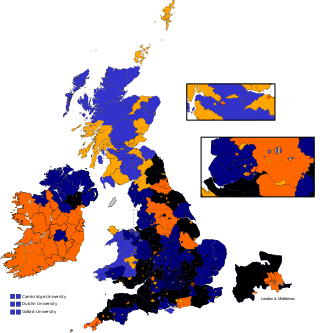
Tower Hamlets was a parliamentary borough (constituency) in Middlesex, England from 1832 to 1885. It elected two Members of Parliament (MPs) to the House of Commons of the Parliament of the United Kingdom. It was one of the first five of its type in the metropolitan area of London. It was enfranchised by the Reform Act 1832.
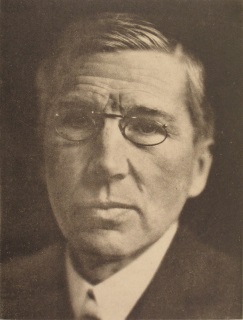
Charles Edward Sayle was an English Uranian poet, literary scholar and librarian.
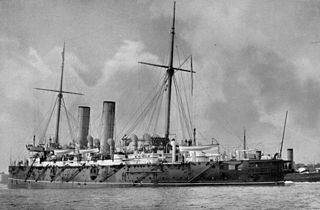
The Commander-in-Chief, Africa was the last title of a Royal Navy's formation commander located in South Africa from 1795 to 1939. Under varying titles, it was one of the longest-lived formations of the Royal Navy. It was also often known as the Cape of Good Hope Station.
The Cambridge History of China is a series of books published by the Cambridge University Press (CUP) covering the history of China from the founding of the Qin dynasty in 221 BC to 1982 AD. The series was conceived by British historian Denis Twitchett and American historian John King Fairbank in the late 1960s, and publication began in 1978. The complete History will contain 15 volumes made up of 17 books with volumes 5 and 9 consisting of two books each.
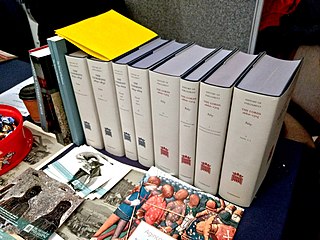
The History of Parliament is a project to write a complete history of the United Kingdom Parliament and its predecessors, the Parliament of Great Britain and the Parliament of England. The history will principally consist of a prosopography, in which the history of an institution is told through the individual biographies of its members. After various amateur efforts the project was formally launched in 1940 and since 1951 has been funded by the Treasury. As of 2019, the volumes covering the House of Commons for the periods 1386–1421, 1509–1629, and 1660–1832 have been completed and published ; and the first five volumes covering the House of Lords from 1660 to 1715 have been published, with further work on the Commons and the Lords ongoing. In 2011 the completed sections were republished on the internet.
This is a timeline of Tanzanian history, comprising important legal and territorial changes and political events in Tanzania and its predecessor states. To read about the background to these events, see History of Tanzania. See also the list of presidents of Tanzania.
Nigel Worden is a British/South African historian who has researched the history of Cape slavery and the social and cultural history of early colonial Cape Town. He is Emeritus Professor of History and retired from the Historical Studies department at the University of Cape Town, South Africa in 2016. He graduated from Jesus College Cambridge and was subsequently Research Fellow at Clare Hall, University of Cambridge and Lecturer in Commonwealth History at the University of Edinburgh. He holds MA and PhD degrees in History from the University of Cambridge and BA degrees in Art History and Linguistics from the University of South Africa.

This timeline of events leading to the American Civil War is a chronologically ordered list of events and issues that historians recognize as origins and causes of the American Civil War. These events are roughly divided into two periods: the first encompasses the gradual build-up over many decades of the numerous social, economic, and political issues that ultimately contributed to the war's outbreak, and the second encompasses the five-month span following the election of Abraham Lincoln as President of the United States in 1860 and culminating in the capture of Fort Sumter in April 1861.
The Cambridge History of Japan is a multi-volume survey of Japanese history published by Cambridge University Press (CUP). This was the first major collaborative synthesis presenting the current state of knowledge of Japanese history. The series aims to present as full a view of Japanese history as possible. The collaborative work brings together the writing of Japanese specialists and historians of Japan.
This is a bibliography of selected publications on the history of Australia.

The Ross expedition was a voyage of scientific exploration of the Antarctic in 1839 to 1843, led by James Clark Ross, with two unusually strong warships, HMS Erebus and HMS Terror. It explored what is now called the Ross Sea and discovered the Ross Ice Shelf. On the expedition, Ross discovered the Transantarctic Mountains and the volcanoes Mount Erebus and Mount Terror, named after each ship. The young botanist Joseph Dalton Hooker made his name on the expedition.
Carolyn Hamilton is a South African anthropologist and historian who is a specialist in the history and uses of archives. She is National Research Foundation of South Africa chair in archive and public culture at the University of Cape Town.
Bernard K. Mbenga is a historian at North-West University, South Africa, where he is a specialist in the history of the north-west of South Africa. He was one of the editors of the first volume of The Cambridge History of South Africa.

The Cambridge History of Africa is an illustrated, eight-volume history of Africa published by Cambridge University Press between 1975 and 1986. Each volume is edited by a different person; the general editors of the series are John Donnelly Fage and Roland Oliver.

The Cambridge History of Islam is a two volume history of Islam published by Cambridge University Press in 1970 and edited by Peter Holt, Ann K.S. Lambton, and Bernard Lewis. It was reprinted in 1977 with amendments and each volume divided into two for ease of use. It was replaced by the six-volume New Cambridge History of Islam in 2010.
The Venerable George Henry Cameron was an Anglican archdeacon in Africa during the first half of the 20th century.